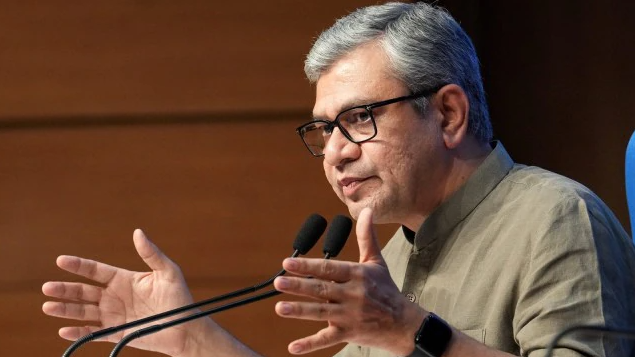India is set to roll out the Rs 10,000 crore India AI Mission in the next two to three months, announced Union IT Minister Ashwini Vaishnaw. This ambitious initiative aims to boost the domestic AI industry by procuring advanced computing resources and fostering innovation.
A Strategic AI Boost
The India AI Mission, approved by the Union Cabinet earlier this year, is designed to support the development of artificial intelligence systems within the country. The plan includes procuring over 10,000 graphics processing units (GPUs) through a public-private partnership. These GPUs will be instrumental in enhancing the computational capabilities of the domestic AI sector.
“We will procure 10,000 or more GPUs under a public-private partnership so that the efficiencies of the industry can be harnessed for a bigger cause,” Vaishnaw stated at the Global IndiaAI Summit 2024. He also highlighted the establishment of an AI innovation center, the development of high-quality data sets, and an application development initiative focused on addressing socio-economic problems.
A Comprehensive AI Ecosystem
The mission emphasizes various key areas, including:
- AI Innovation Center: A hub for AI research and development.
- High-Quality Data Sets: Providing valuable resources for startups to enhance their AI models.
- Application Development Initiative: Creating AI applications to solve socio-economic issues.
- Skill Development: Training and upskilling individuals in AI technologies.
Addressing AI’s Challenges
Vaishnaw acknowledged the rapid growth of AI and its transformative potential for businesses and societies. However, he also noted the realization of AI’s potential dangers to social institutions. “In the recent Lok Sabha elections, we saw the threat of misinformation and disinformation, which was multiplied with the power of AI. The entire world has experienced this and is feeling the same threats,” he said.
To mitigate these risks, Vaishnaw cited global interventions such as the European Union’s AI Act and the United States’ executive orders to regulate AI systems. These measures aim to ensure that AI technology is accessible and controlled responsibly.
A Blueprint for the Future
Although the India AI Mission is currently a blueprint, its approval is expected to attract significant investments in the sector. Private companies are likely to set up data centers in India, providing startups with the infrastructure needed to develop and test their AI models. Vaishnaw emphasized that technology should be accessible to everyone, drawing parallels with India’s digital public infrastructure initiatives.
This strategic move by the Indian government aims to position the country as a leader in AI innovation, ensuring that the benefits of AI technology are widely accessible while addressing the potential risks associated with its rapid growth.

